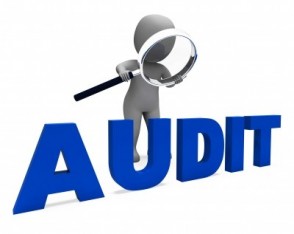ATO Audits - A Blitz on Cash-Based Businesses
After a highly successful ‘blitz’ on businesses based in the eastern suburbs of Melbourne, the Australian Taxation Office (ATO) will maintain its audit focus on cash-based businesses.
The ATO staff visited 131 small businesses in the suburb of Box Hill and audited 31 of them to find around $8 million in unreported payments. To date, $1.8 million has been paid back in taxes and penalties. ATO Assistant Commissioner Matthew Bambrick said, Box Hill and Glen Waverley were among the suburbs targeted because they had been identified as having “high cash economy risk behaviours”. This includes cash only signs, lack of business and industry education and poor record keeping. He said businesses that dealt only in cash were more easily able to avoid tax and their  superannuation obligations.
superannuation obligations.
The industries heavily targeted as part of the Box Hill blitz included:
- Restaurants
- Cafes
- Hairdressers
- Beauty Salons
The Assistant Commissioner also said, The Tax Office will continue to target these cash-based industries who are characterised by “low use of merchant banking facilities”. The most common concerns of the ATO were employers paying cash in hand to staff, under-reported income, failure to report withholding tax from wages and not paying the correct amount of staff superannuation.
Australian Taxation Office (ATO) Commissioner Chris Jordan has previously warned cash-heavy businesses that they are in the firing line. He cited a number of common breaches that they are on the lookout for including cash registers that don’t have till tapes, transaction records that show a large number of “no sale” or voided transactions and the use of a wallet as a cash drawer. Jordan also said visits to businesses throughout 2017 revealed many operators who were running businesses despite not having proper ABN or GST registrations.
He also said the ATO were monitoring the lifestyles of small business owners as a top priority, with the Tax Office targeting “unexplained wealth or lifestyle for individuals and small businesses”. In the past the ATO have monitored ownership of what they describe as ‘lifestyle assets’ including marine vessels (e.g. boats), aircrafts, enthusiast motor vehicles, thoroughbred race horse and fine art. The ATO collect data on insurance policies for certain classes of assets to help them profile taxpayers to identify audit candidates.
The ATO have previously announced it would be using social media platforms like Facebook to monitor displays of wealth from individuals that did not match up with what they had reported about their income and affairs.
In the event the auditors pay your business a visit you should ask for proof of their official status. All ATO officers carry identification with them that they should produce during the visit. An ATO officer may request a range of information regarding your record keeping or staff and ideally business owners should have all their documents on hand. In most cases the ATO will give you time to get the information and records together and the officers will generally not ask you to hand over records during the initial visit.
The ATO also wants small business owners to understand that a visit from the Tax Office doesn’t automatically mean they will escalate the visit to a full audit. In the words of the ATO, “Business owners should remember the purpose of any visits is to work out whether there needs to be a future conversation about compliance’. They say, “Visiting businesses in person is about helping them to meet their obligations. Through the visits we can quickly identify who needs extra support, who may need to be engaged in a different way and make it easier for them to comply.”
If you get an officer from the ATO knocking at your door or operate a high cash turnover business and have concerns around your record keeping, contact us today.









